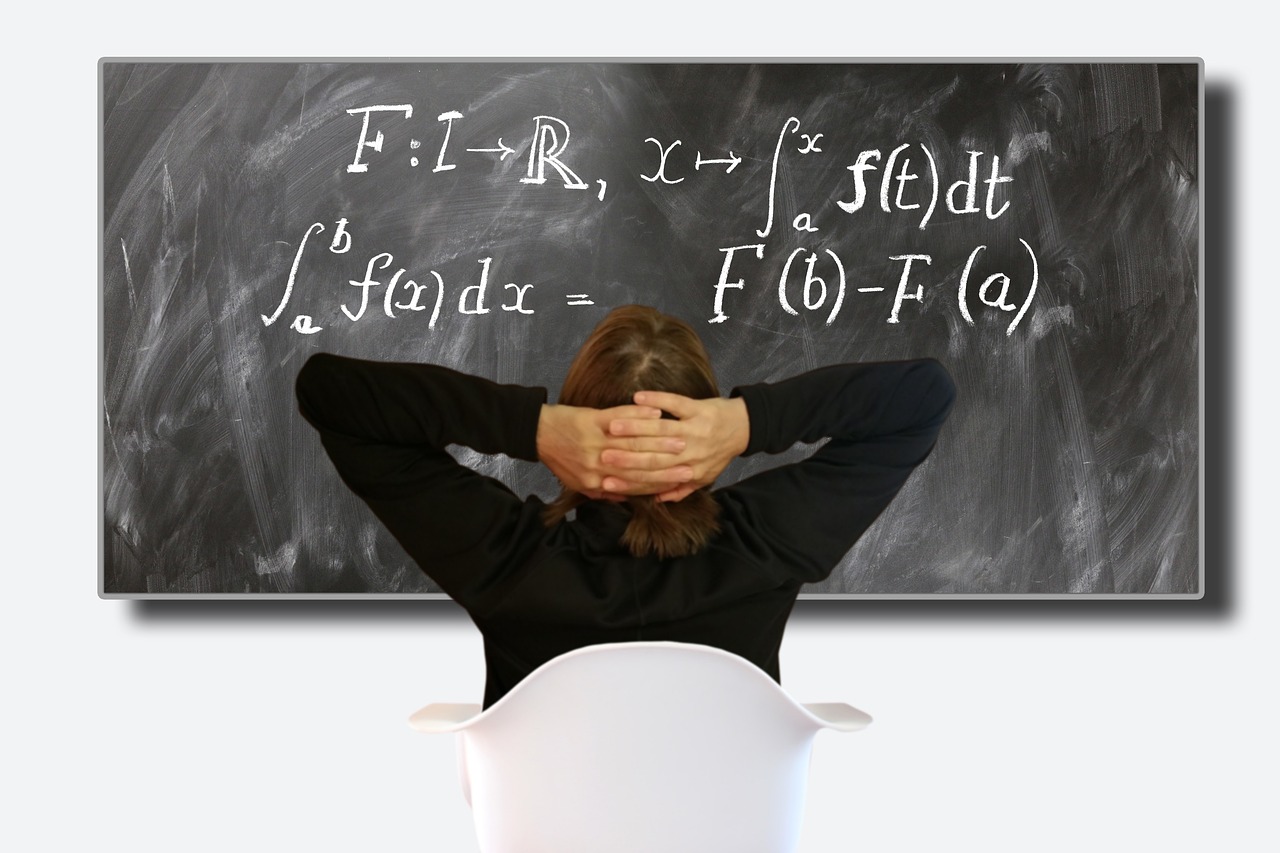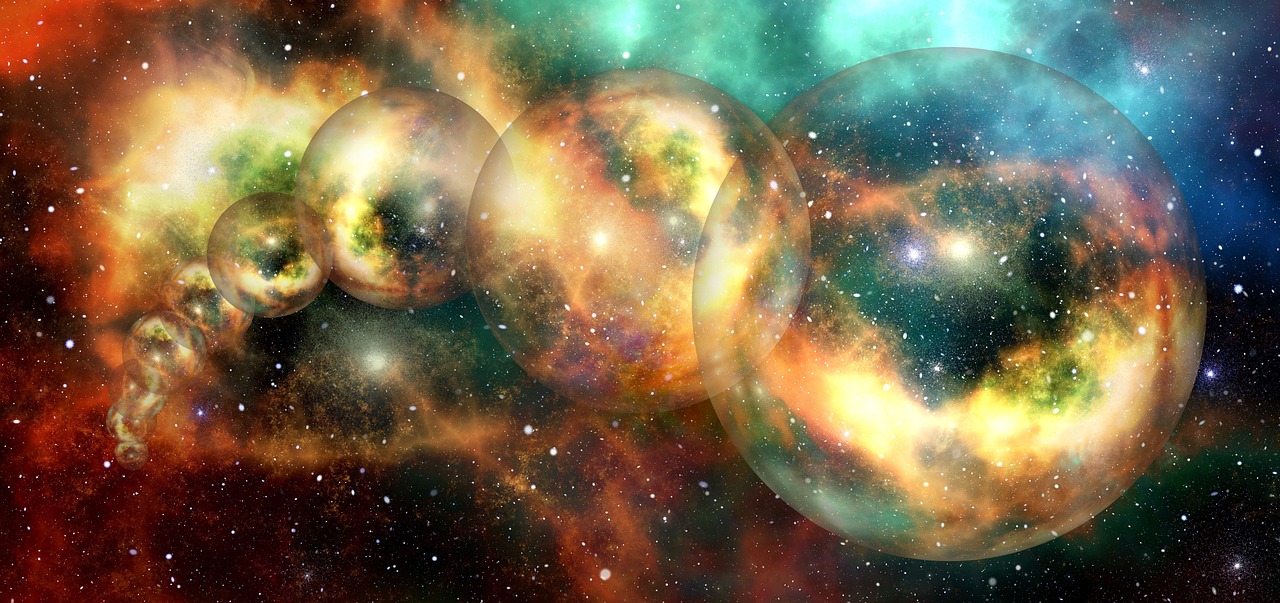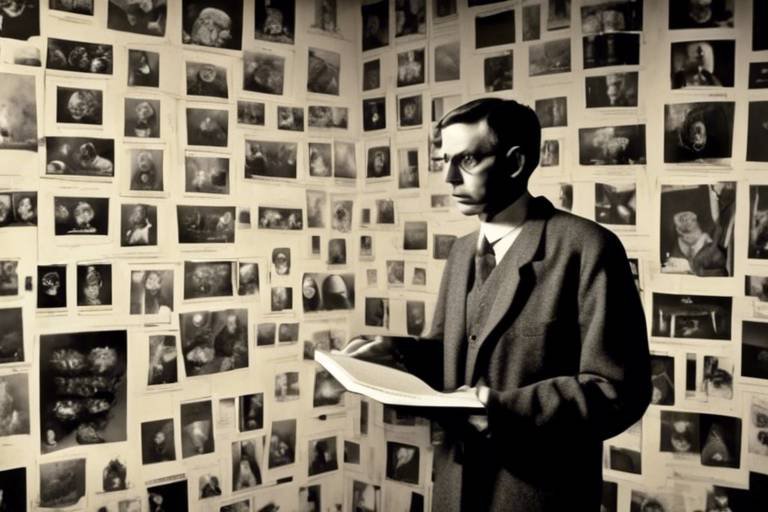Philosophical Foundations of Quantum Physics
Quantum physics isn’t just a field of scientific inquiry; it’s a profound philosophical puzzle that challenges our very understanding of reality. Imagine standing at the edge of a vast ocean, where the waves represent the myriad concepts of existence, knowledge, and the universe itself. As we dive deeper into the waters of quantum mechanics, we find ourselves grappling with questions that have perplexed thinkers for centuries. What is the nature of reality? Is it something solid and tangible, or is it a mere illusion shaped by our perceptions? These questions aren’t merely academic; they resonate with our everyday experiences and beliefs. The intersection of philosophy and quantum physics invites us to reconsider everything we thought we knew about the universe.
At the heart of this exploration lies a striking realization: quantum phenomena defy the traditional boundaries of existence. Take, for instance, the concept of realism, which posits that the world exists independently of our observations. Quantum mechanics, however, introduces a twist to this narrative. The very act of observation can influence the behavior of particles, leading to a reality that is not only interdependent but also fluid and dynamic. This challenges the classical notion of an objective reality, suggesting instead that what we perceive may be shaped by our consciousness and interactions. In a way, it’s like trying to catch a glimpse of a shadow; the moment you reach out, it dances away, leaving you questioning what is truly there.
Moreover, the philosophical implications of quantum physics extend into the realms of determinism and indeterminism. In classical physics, the universe is often viewed as a well-oiled machine, where every event is predetermined by preceding conditions. But quantum mechanics throws a wrench into this machine, introducing elements of randomness and uncertainty. Can we truly say that events are predetermined, or is there a fundamental role for chance in the cosmic dance? This question not only resonates in the scientific community but also in our personal lives, prompting us to reflect on the nature of fate and free will.
As we delve deeper into these philosophical waters, we uncover layers of complexity that challenge our understanding of free will and moral responsibility. If the universe is inherently indeterministic, what does that mean for our choices and actions? Are we merely puppets dancing on the strings of chance, or do we possess genuine agency? This inquiry leads to a rich tapestry of philosophical responses, from compatibilism, which seeks to harmonize free will with determinism, to libertarianism, which champions the idea of absolute freedom in decision-making. Each perspective offers a unique lens through which to view the intricate relationship between quantum mechanics and our understanding of self.
Furthermore, the concept of the observer effect in quantum mechanics raises profound questions about the nature of knowledge and reality. When we observe a quantum system, do we merely witness its state, or do we actively participate in shaping it? This idea blurs the lines between observer and observed, prompting us to reconsider the very foundations of knowledge itself. It’s akin to a photographer capturing a moment in time; the photograph may reflect reality, but it’s also filtered through the photographer’s perspective, biases, and choices. In this sense, our understanding of the universe is not just a passive reception of information but an active engagement with the world around us.
In summary, the philosophical foundations of quantum physics challenge us to rethink our assumptions about reality, existence, and knowledge. The interplay between quantum mechanics and philosophy is not just a theoretical exercise; it has real-world implications that affect how we live, make decisions, and understand our place in the universe. As we navigate these uncharted waters, we are reminded that the quest for understanding is a journey filled with wonder, uncertainty, and the promise of new discoveries.
- What is the relationship between quantum physics and philosophy? Quantum physics raises fundamental questions about the nature of reality, knowledge, and existence, prompting philosophical inquiry into these concepts.
- How does quantum mechanics challenge traditional views of determinism? Quantum mechanics introduces elements of randomness and uncertainty, suggesting that not all events are predetermined.
- What are the implications of the observer effect? The observer effect indicates that the act of observation can influence the state of a quantum system, raising questions about the nature of reality and knowledge.
- What philosophical responses exist regarding free will in light of quantum indeterminism? Philosophers have proposed various responses, including compatibilism, which attempts to reconcile free will with determinism, and libertarianism, which advocates for absolute freedom in decision-making.

The Nature of Reality
When we dive into the world of quantum physics, we are not just exploring a set of scientific principles; we are embarking on a philosophical journey that challenges our very understanding of what reality is. Imagine standing on the edge of a vast ocean, where every wave represents a different interpretation of existence. Quantum physics, with its peculiar behaviors and phenomena, pushes us to reconsider our traditional notions of reality, leading us to profound questions: What is real? How do we define existence? And what does it mean to observe something?
At the heart of this inquiry lies the philosophical debate between realism and idealism. Realists assert that an objective reality exists independent of our perceptions, while idealists argue that reality is fundamentally shaped by our consciousness. Quantum mechanics introduces an intriguing twist to this discussion. For instance, the famous double-slit experiment demonstrates that particles can behave as both waves and particles, depending on whether they are observed. This phenomenon suggests that the act of observation may play a crucial role in shaping reality itself.
Consider this: if a tree falls in a forest and no one is around to hear it, does it make a sound? Quantum physics might suggest that the answer is not as straightforward as we once thought. The implications of this are staggering. Could it be that reality is not a fixed entity, but rather a fluid tapestry woven from the threads of observation and consciousness? This perspective invites us to rethink our relationship with the universe, pushing us to explore the boundaries of knowledge and existence.
Furthermore, the challenges posed by quantum phenomena lead us to question the very fabric of reality. As we delve deeper, we encounter concepts such as superposition and entanglement, which defy classical intuitions. In this strange realm, particles can exist in multiple states simultaneously, and entangled particles remain connected regardless of the distance separating them. This nonlocality raises questions about the nature of space and time, compelling us to reconsider how we understand causality and connection in our everyday lives.
As we navigate these complex waters, it becomes evident that the nature of reality is not merely a scientific inquiry but a philosophical one as well. The interplay between quantum mechanics and philosophical thought challenges us to expand our horizons and embrace the uncertainty that comes with it. Ultimately, the quest to understand reality through the lens of quantum physics invites us to ponder our place in the universe and the very essence of existence itself.
- What is the relationship between quantum physics and philosophy? Quantum physics challenges traditional philosophical concepts of reality, existence, and knowledge.
- How does the observer effect influence our understanding of reality? The observer effect suggests that observation can alter the state of a system, leading to questions about the nature of reality itself.
- What are the implications of quantum entanglement for our understanding of causality? Quantum entanglement raises questions about how events are interconnected, suggesting that causality may not be as straightforward as previously thought.
- Can quantum mechanics coexist with free will? The indeterministic nature of quantum mechanics opens up discussions about free will, prompting philosophical debates on human agency.

Determinism vs. Indeterminism
The debate between determinism and indeterminism in quantum mechanics is not just a scientific discussion; it’s a philosophical battleground that questions the very fabric of our understanding of the universe. At its core, determinism suggests that every event or state of affairs, including every human action, is the outcome of preceding events in accordance with the natural laws. Imagine a giant cosmic clock, where every tick and tock is predetermined by the gears of the universe. Now, contrast that with indeterminism, which proposes that not all events are preordained and that some are inherently random. This brings to mind the image of a dice roll—no matter how skilled you are, the outcome can never be fully predicted. So, which side holds more water in the quantum realm?
In classical physics, determinism reigned supreme. The laws of motion laid down by Newton suggested that if you knew the position and velocity of every particle in the universe, you could predict the future. However, quantum mechanics throws a wrench into this beautifully ordered machine. The Heisenberg Uncertainty Principle, for instance, posits that you cannot simultaneously know both the position and momentum of a particle with absolute certainty. This principle introduces a level of unpredictability that challenges the deterministic view, suggesting that at a fundamental level, the universe is not as predictable as we once thought.
Moreover, the implications of indeterminism extend beyond mere scientific inquiry; they ripple through our understanding of free will and moral responsibility. If the universe is fundamentally random, what does that mean for our choices? Are we merely players in a cosmic game of chance? This is where philosophical discussions become particularly rich and complex. Imagine sitting at a poker table where the cards are dealt by fate—do you have agency over your decisions, or are you simply responding to the whims of chance?
To illustrate the contrast between classical determinism and quantum indeterminism, consider the following table:
| Aspect | Classical Determinism | Quantum Indeterminism |
|---|---|---|
| Predictability | High | Low |
| Nature of Events | Preordained | Random |
| Philosophical Implications | Supports free will | Challenges free will |
As we delve deeper into the philosophical implications of quantum mechanics, we must confront the question of free will. If indeterminism holds, does it provide a pathway to genuine free will? Or does it merely replace one form of determinism with another? This is where philosophical responses come into play, as thinkers grapple with reconciling the randomness of quantum events with our intuitive sense of agency.
In conclusion, the clash between determinism and indeterminism is not just a theoretical debate but a profound inquiry into the nature of existence itself. It challenges us to reconsider our views on reality, knowledge, and the very essence of what it means to be human. As we continue to explore the quantum realm, we are left with more questions than answers, inviting us to ponder: in a universe where randomness reigns, what does it mean to truly know anything?
- What is determinism? Determinism is the philosophical view that all events are determined completely by previously existing causes.
- What is indeterminism? Indeterminism is the idea that not all events are determined by prior states and that some events occur randomly.
- How does quantum mechanics challenge determinism? Quantum mechanics introduces uncertainty and randomness, suggesting that at a fundamental level, events may not be predictable.
- What are the implications of indeterminism for free will? Indeterminism raises questions about human agency and whether our choices are truly free or influenced by random events.

Classical vs. Quantum Determinism
When we dive into the fascinating world of determinism, we find ourselves grappling with two distinct yet interconnected realms: classical determinism and quantum indeterminism. Classical determinism, rooted in the laws of Newtonian physics, posits that every event or state of affairs is determined by preceding events according to fixed laws. Imagine a perfectly orchestrated symphony where each note follows the previous one in a predictable manner; this is the essence of classical determinism. For instance, if you know the position and velocity of a ball at a given moment, you can predict its future trajectory with absolute certainty. But what happens when we introduce the quantum realm?
In stark contrast, quantum mechanics introduces a level of uncertainty that challenges our traditional views. Here, particles do not follow the predictable paths we expect; instead, they behave more like a game of chance. The famous thought experiment of Schrödinger's cat illustrates this beautifully. In this scenario, a cat is simultaneously alive and dead until observed, emphasizing the inherent randomness of quantum events. This unpredictability suggests that at a fundamental level, the universe is not as deterministic as we once believed. The implications are profound. If quantum mechanics governs the behavior of particles at the smallest scales, then perhaps our understanding of causality and predictability needs a serious overhaul.
To further clarify the differences between classical and quantum determinism, let’s take a look at the following table:
| Aspect | Classical Determinism | Quantum Indeterminism |
|---|---|---|
| Predictability | High - Future states can be predicted with certainty. | Low - Future states are probabilistic and uncertain. |
| Nature of Events | Events are determined by preceding conditions. | Events can occur randomly without a deterministic cause. |
| Example | Newton’s laws of motion. | Quantum phenomena like particle decay. |
This shift from a deterministic to an indeterministic view of the universe raises intriguing questions about our understanding of free will. If the universe operates on principles of randomness, how does that affect our sense of agency? Are we merely players in a cosmic game of dice, or do we have the ability to influence outcomes? Philosophers and scientists alike continue to debate these questions, pondering whether free will can coexist with the unpredictable nature of quantum mechanics. It’s a thrilling intellectual journey that challenges our deepest assumptions about reality and existence. As we navigate through this complex landscape, one thing becomes clear: the transition from classical to quantum determinism isn't just a shift in physics; it's a profound transformation in our understanding of the universe and our place within it.

Implications for Free Will
The debate over free will is as old as philosophy itself, but the advent of quantum mechanics has added a new layer of complexity to this age-old discussion. If we consider the indeterministic nature of quantum events, we must ask: does this randomness grant us true freedom in our choices, or does it merely introduce chaos into an otherwise structured universe? The implications for free will are profound and multifaceted, leading us to reevaluate what it means to be an agent capable of making decisions.
At its core, the question of free will hinges on whether our actions are determined by prior states of the universe or if we possess the autonomy to choose differently. Traditional determinism, as seen in classical physics, suggests that every event is the result of preceding causes, leaving little room for genuine choice. However, quantum mechanics introduces a level of uncertainty that challenges this deterministic view. If particles behave in fundamentally unpredictable ways, could it be that human decisions are also influenced by similar indeterminate processes? This leads to the tantalizing possibility that our choices might not be preordained, but rather subject to the whims of quantum fluctuations.
But what does this mean for moral responsibility? If our decisions are influenced by randomness, can we still hold individuals accountable for their actions? This question is at the heart of many philosophical discussions surrounding free will. Some argue that if our choices are not entirely determined, then we can indeed be held responsible, as we are still making choices, albeit in a less predictable framework. Others contend that if randomness plays a significant role in our decision-making, it undermines the very foundation of moral responsibility, suggesting that we are not fully in control of our actions.
To navigate this complex terrain, philosophers have proposed various frameworks to reconcile free will with quantum mechanics. For instance, compatibilism posits that free will and determinism are not mutually exclusive. In this view, even if our choices are influenced by prior causes, as long as we act according to our desires and intentions, we can still be considered free. On the other hand, libertarianism argues for a more radical interpretation, suggesting that true free will requires indeterminism, positing that some events, including human decisions, are not predetermined at all.
The implications of quantum mechanics on free will extend beyond philosophical discourse; they touch upon our understanding of human nature, ethics, and society. If we embrace the idea that our decisions are influenced by quantum indeterminacy, it may lead to a shift in how we view accountability and justice. Imagine a legal system that takes into account the unpredictable nature of human choice, recognizing that individuals may not always act with full agency due to factors beyond their control. This could foster a more compassionate approach to justice, one that emphasizes rehabilitation over punishment.
In conclusion, the relationship between quantum mechanics and free will is a fascinating intersection of science and philosophy. As we continue to explore the depths of quantum phenomena, we must also grapple with the implications for our understanding of human agency. Are we mere pawns in a quantum game, or do we possess the ability to navigate the uncertainties of existence with genuine freedom? The answers remain elusive, but the dialogue is essential as we seek to understand our place in the universe.
- What is the relationship between quantum mechanics and free will? Quantum mechanics introduces elements of indeterminism that challenge traditional deterministic views of free will, suggesting that some events may not be predetermined.
- Can we hold individuals morally responsible if their choices are influenced by quantum randomness? This is a debated topic; some argue that accountability remains intact if choices align with personal desires, while others believe randomness undermines moral responsibility.
- What are compatibilism and libertarianism in the context of free will? Compatibilism suggests that free will and determinism can coexist, while libertarianism argues that true free will requires indeterminism.
- How might quantum mechanics influence our legal system? The unpredictability of human choice, influenced by quantum mechanics, could lead to a more compassionate legal framework that emphasizes rehabilitation over punishment.

Philosophical Responses
As we dive deeper into the intriguing waters of quantum indeterminism, we encounter a myriad of philosophical responses that attempt to reconcile the apparent chaos of quantum mechanics with our understanding of free will and moral responsibility. The tension between randomness in quantum events and the notion of human agency has sparked vibrant debates among philosophers, scientists, and theorists alike. At the heart of these discussions are two prominent philosophical positions: compatibilism and libertarianism.
Compatibilists argue that free will and determinism are not mutually exclusive. They suggest that even if our choices are influenced by quantum randomness, we can still possess a form of free will that is meaningful. This perspective posits that human actions can be seen as free as long as they align with our desires and intentions, regardless of whether those desires are determined by prior states of the universe or influenced by quantum fluctuations. In essence, compatibilism seeks to harmonize the deterministic elements of classical physics with the indeterministic nature of quantum mechanics, suggesting that our subjective experience of making choices is sufficient for moral responsibility.
On the other hand, libertarians take a more radical stance, asserting that true free will requires the absence of determinism. They argue that if quantum events are fundamentally random, then our decisions could also be influenced by these unpredictable occurrences, leading to a view of free will that is purely indeterminate. This position raises profound questions: if our choices are not determined by prior causes, can we still be held accountable for our actions? Libertarians contend that genuine freedom entails the ability to choose otherwise in any given situation, a notion that becomes complicated when we introduce quantum mechanics into the equation.
To further illustrate the contrast between these two philosophical responses, consider the following table:
| Philosophical Position | Key Features | Implications for Free Will |
|---|---|---|
| Compatibilism |
|
Maintains that individuals can be held accountable for their actions, even if influenced by deterministic factors. |
| Libertarianism |
|
Posits that accountability is complicated by the randomness of choices, challenging traditional views of moral responsibility. |
Both compatibilism and libertarianism offer valuable insights into the philosophical implications of quantum indeterminism, but they also raise further questions. For instance, if quantum mechanics introduces an element of randomness into our decision-making processes, how do we navigate the murky waters of accountability? Can we truly claim to be the authors of our actions if they are influenced by unpredictable quantum events?
In the end, the philosophical responses to quantum indeterminism highlight the complex interplay between science and philosophy. As we continue to unravel the mysteries of quantum physics, we must also grapple with the profound implications these discoveries have on our understanding of reality, knowledge, and existence. The conversation is far from over, and as new theories emerge and our understanding deepens, so too will our philosophical inquiries into the nature of free will and human agency.
- What is quantum indeterminism? Quantum indeterminism refers to the idea that certain events at the quantum level cannot be predicted with certainty, introducing an element of randomness into the universe.
- How does quantum mechanics challenge traditional views of free will? Quantum mechanics suggests that if events are fundamentally random, it complicates the notion of free will, raising questions about moral responsibility and human agency.
- What are compatibilism and libertarianism? Compatibilism is the view that free will and determinism can coexist, while libertarianism asserts that true free will requires indeterminism and rejects determinism.

Observer Effect and Reality
The concept of the observer effect in quantum mechanics is a fascinating topic that raises profound questions about the nature of reality itself. At its core, the observer effect suggests that the act of observation can influence the outcome of a quantum event. This idea challenges our traditional understanding of reality as something that exists independently of our perception. Imagine you're in a dark room, and you flick on a light switch; suddenly, everything is illuminated. In the quantum world, however, turning on the light isn't just about illumination—it's about changing the very fabric of what's happening in that room.
To illustrate this point, consider the famous double-slit experiment. When particles, such as electrons, are fired at a barrier with two slits, they can behave like waves, creating an interference pattern that suggests they are passing through both slits simultaneously. However, when we observe which slit the particles go through, they behave like particles, and the interference pattern disappears. This phenomenon raises a tantalizing question: Is reality a set of probabilities that only solidify into a definite state when we choose to observe them? Or is our observation merely revealing a pre-existing reality?
Philosophically speaking, the observer effect invites us to reconsider our understanding of knowledge and existence. If our observations can alter the state of a system, then what does that mean for the nature of reality? Are we mere spectators in a cosmic play, or do we have an active role in shaping the universe around us? This leads to a deeper inquiry into the implications of quantum mechanics for our understanding of consciousness. Is consciousness itself a fundamental aspect of the universe, one that interacts with and influences physical reality?
Moreover, the observer effect raises questions about the reliability of knowledge. If observation can change outcomes, how can we trust our measurements and perceptions? This uncertainty can lead to a philosophical conundrum: If reality is contingent upon observation, can we ever claim to know anything with absolute certainty? It’s a bit like trying to catch smoke with your bare hands—every time you think you’ve grasped it, it slips away, leaving you with nothing but uncertainty.
In summary, the observer effect is not just a quirky aspect of quantum mechanics; it has profound implications for our understanding of reality. It challenges the very notion of an objective universe, suggesting that our perceptions and interactions play a crucial role in shaping the fabric of existence. As we delve deeper into the mysteries of quantum mechanics, we find ourselves at the intersection of science and philosophy, where the lines between observer and observed blur, and the nature of reality becomes a tantalizing puzzle waiting to be solved.
- What is the observer effect? The observer effect refers to the phenomenon where the act of observing a quantum system can alter its state, impacting the results of measurements.
- How does the observer effect challenge our understanding of reality? It suggests that reality may not exist independently of observation, leading to questions about the nature of knowledge and existence.
- What is the significance of the double-slit experiment? The double-slit experiment illustrates the observer effect by showing how particles behave differently when observed versus when they are not.
- Can we trust our observations in quantum mechanics? The observer effect raises concerns about the reliability of measurements, as observation can influence outcomes, leading to uncertainty in our knowledge.

Quantum Entanglement and Nonlocality
When we dive into the depths of quantum entanglement, we encounter a realm that defies our everyday understanding of the universe. Imagine two particles, once connected, can remain intertwined even when separated by vast distances. This phenomenon, known as nonlocality, challenges our classical notions of space and time, suggesting that information can be shared instantaneously, regardless of distance. It's as if these particles are communicating through a hidden connection, transcending the limitations that govern our macroscopic world. This leads us to ponder: What does this mean for our understanding of reality?
At its core, quantum entanglement raises profound questions about the nature of causality and the interconnectedness of events. In classical physics, we often think of cause and effect as linear and local. For instance, if you throw a ball, its trajectory can be predicted based on the forces acting upon it. However, in the quantum realm, entangled particles can influence each other instantaneously, regardless of the distance separating them. This phenomenon suggests a level of interconnectedness that seems almost magical, prompting us to reconsider how we define causality in our universe.
To illustrate this, consider the following table that summarizes the key differences between classical and quantum causality:
| Aspect | Classical Causality | Quantum Causality |
|---|---|---|
| Nature of Influence | Local, linear | Nonlocal, instantaneous |
| Separation of Events | Events occur in a defined order | Events can be correlated regardless of distance |
| Predictability | Deterministic | Probabilistic |
As we explore these implications, we also encounter various philosophical interpretations of quantum entanglement. The Copenhagen interpretation posits that particles exist in a state of probability until observed, while the many-worlds theory suggests that every possible outcome of a quantum event actually occurs in separate, parallel universes. Each of these interpretations carries distinct implications for our understanding of reality, leading us to ask: Are we merely observers in a grand cosmic play, or do we actively shape the universe through our observations?
Furthermore, the concept of nonlocality raises questions about the very fabric of our universe. If entangled particles can communicate instantaneously, what does that say about the limits of information transfer? Are we living in a universe where everything is fundamentally connected, suggesting a deeper unity underlying the apparent separateness of objects? This idea resonates with many philosophical traditions that emphasize the interconnectedness of all things, prompting a reevaluation of our place in the cosmos.
In conclusion, quantum entanglement and nonlocality not only challenge our scientific understanding but also invite us to engage with profound philosophical questions about existence, reality, and our role as observers. As we continue to unravel the mysteries of the quantum world, we may find that the answers lie not just in mathematics and experiments, but in a deeper understanding of the nature of reality itself.
- What is quantum entanglement? Quantum entanglement is a phenomenon where two or more particles become linked, such that the state of one particle instantly influences the state of the other, regardless of distance.
- How does nonlocality work? Nonlocality refers to the ability of entangled particles to affect each other instantaneously, defying the classical notion that information cannot travel faster than the speed of light.
- What are the implications of quantum entanglement for our understanding of reality? Quantum entanglement challenges traditional views of causality and separateness, suggesting that all particles may be interconnected in ways we are just beginning to understand.

Implications for Causality
When we dive into the realm of quantum entanglement, we are not just scratching the surface of physics; we are entering a philosophical labyrinth that challenges our very understanding of causality. Traditionally, we perceive causality as a linear chain of events: A causes B, which in turn causes C. However, quantum mechanics throws a wrench into this neatly organized view. Imagine a world where events are not just linked by straightforward cause and effect, but rather intertwined in a complex web of possibilities. This is the reality that quantum entanglement presents.
One of the most striking implications of quantum entanglement is the phenomenon known as nonlocality. In classical physics, we assume that influences occur through direct interaction within a defined space and time. However, entangled particles seem to communicate instantaneously, regardless of the distance separating them. This raises profound questions: If two particles can affect each other instantaneously, what does that mean for our understanding of time and space? Are we witnessing a breakdown of causality as we know it?
To explore these implications further, consider the following points:
- Redefining Cause and Effect: In the quantum world, the traditional notion of cause preceding effect becomes murky. Events can be correlated without a clear causal relationship.
- Challenges to Classical Causality: Quantum mechanics suggests that causality might not be a universal principle but rather a classical approximation that breaks down at microscopic scales.
- Impacts on Scientific Inquiry: The implications of nonlocality and entanglement challenge scientists to rethink their experimental designs and interpretations of data.
Moreover, the implications for causality extend beyond theoretical discussions; they have real-world consequences. For instance, in quantum computing, the principles of entanglement are harnessed to perform computations in ways that classical computers cannot. This technological leap not only pushes the boundaries of what we can achieve but also forces us to reconsider the very foundation of how we understand causation in the context of computation.
In summary, the implications of quantum entanglement for causality are profound and multifaceted. They compel us to reevaluate not only the mechanics of the universe but also our philosophical perspectives on how events are interconnected. As we continue to explore the quantum realm, we may find ourselves redefining what it means to cause and to exist. The journey into this uncharted territory is not just a scientific endeavor; it's a philosophical quest that invites us to ponder the very fabric of reality.
- What is quantum entanglement? Quantum entanglement is a phenomenon where two or more particles become interconnected in such a way that the state of one particle instantly influences the state of another, regardless of the distance between them.
- How does quantum entanglement challenge traditional notions of causality? It challenges the idea that cause and effect occur in a linear and local manner, suggesting instead that events can be correlated without a clear causal link.
- What are the practical implications of quantum entanglement? Quantum entanglement has significant implications for fields such as quantum computing and cryptography, enabling advancements that are impossible under classical physics.

Philosophical Interpretations of Entanglement
When we dive into the mysterious world of quantum entanglement, we find ourselves at the crossroads of physics and philosophy. Quantum entanglement, where pairs or groups of particles become interconnected in such a way that the state of one instantly influences the state of another, regardless of distance, presents a fascinating puzzle for our understanding of reality. This phenomenon challenges our conventional notions of separateness and locality, prompting a rich tapestry of philosophical interpretations that seek to explain what entanglement means for our understanding of the universe.
One of the most prominent interpretations is the Copenhagen interpretation, which posits that quantum particles do not have definite properties until they are observed. According to this view, entangled particles remain in a superposition of states, and only upon measurement do they 'choose' a state. This leads to profound questions about the role of the observer in shaping reality. Are we mere spectators, or do we play an active role in determining the fabric of existence? The implications of this interpretation suggest that reality is not a fixed entity but rather a dynamic interplay of possibilities.
In contrast, the Many-Worlds Interpretation offers a radically different perspective. It posits that all possible outcomes of quantum measurements actually occur, each in its own separate 'branch' of the universe. This means that every time a measurement is made, the universe splits into multiple realities, each representing a different outcome. This interpretation raises intriguing philosophical questions about the nature of existence and identity. If every possibility exists in parallel, what does it mean to be 'us'? Are we merely one version of ourselves among countless others?
Another interpretation worth noting is de Broglie-Bohm theory, which introduces the concept of hidden variables. This theory suggests that particles have definite positions and velocities at all times, guided by a 'pilot wave.' In this framework, entanglement is explained through these hidden variables, preserving a deterministic view of reality. However, this interpretation also invites scrutiny regarding the implications for free will and determinism, as it reintroduces a level of predictability that quantum mechanics seems to undermine.
Each of these interpretations not only reflects different philosophical stances but also influences our understanding of key concepts such as causality, reality, and the nature of knowledge. For instance, the observer effect, which suggests that the act of observation alters the state of a quantum system, leads us to ponder the extent of our influence on reality. Are we shaping the universe with our perceptions, or are we simply uncovering a pre-existing tapestry of existence?
Ultimately, the philosophical interpretations of quantum entanglement highlight the profound and often perplexing relationship between science and philosophy. They challenge us to reconsider our assumptions about reality and encourage a deeper exploration of the fundamental nature of existence. As we continue to unravel the mysteries of quantum mechanics, the dialogue between these two fields will remain essential in our quest for understanding.
- What is quantum entanglement? Quantum entanglement is a phenomenon where particles become interconnected in such a way that the state of one particle instantly influences the state of another, regardless of the distance separating them.
- What are the implications of entanglement for our understanding of reality? Entanglement challenges traditional notions of separateness and locality, suggesting that reality may be more interconnected than previously thought.
- How do different interpretations of entanglement affect our understanding of free will? Different interpretations, such as the Copenhagen interpretation and Many-Worlds Interpretation, offer varying perspectives on determinism and free will, raising questions about human agency and the nature of choice.
- Can entanglement be observed in everyday life? While entanglement is typically observed in controlled laboratory settings, its principles underpin many technologies, including quantum computing and cryptography.
Frequently Asked Questions
- What is the relationship between philosophy and quantum physics?
The relationship between philosophy and quantum physics is intricate and fascinating. Philosophy helps us explore the fundamental questions about reality, existence, and knowledge that arise from quantum mechanics. It challenges our traditional views and encourages us to think deeply about the implications of quantum phenomena on our understanding of the universe.
- How does quantum physics challenge our understanding of reality?
Quantum physics poses significant questions about the nature of reality itself. It introduces concepts like wave-particle duality and superposition, which challenge the classical notions of existence. These phenomena suggest that reality may not be as straightforward as we once thought, leading to philosophical debates about realism and idealism.
- What is the difference between classical determinism and quantum indeterminism?
Classical determinism asserts that every event is predetermined by preceding states, while quantum indeterminism introduces a level of randomness and uncertainty at the quantum level. This distinction raises profound philosophical questions about free will and the nature of causality, suggesting that not everything in the universe is fixed or predictable.
- Does quantum mechanics imply that we have free will?
The indeterministic nature of quantum mechanics has led to various philosophical interpretations regarding free will. Some argue that if events are not predetermined, then we might have a form of free will. However, others contend that randomness does not equate to true agency, leading to ongoing debates in philosophy about moral responsibility and human decision-making.
- What is the observer effect in quantum mechanics?
The observer effect refers to the phenomenon where the act of observation influences the state of a quantum system. This raises intriguing philosophical questions about the nature of knowledge and existence. If observation can alter reality, what does that mean for our understanding of objective truth and the role of consciousness in shaping the universe?
- What are quantum entanglement and its philosophical implications?
Quantum entanglement is a phenomenon where particles become interconnected in such a way that the state of one instantly affects the state of another, regardless of distance. This challenges traditional notions of space and time, prompting philosophers to reconsider concepts of causality and the interconnectedness of events in the quantum realm.
- What are some interpretations of quantum mechanics related to entanglement?
There are several interpretations of quantum mechanics that address entanglement, including the Copenhagen interpretation, which suggests that particles exist in a superposition until observed, and the many-worlds theory, which posits that all possible outcomes occur in parallel universes. Each interpretation has unique implications for our understanding of reality and the nature of existence.



















